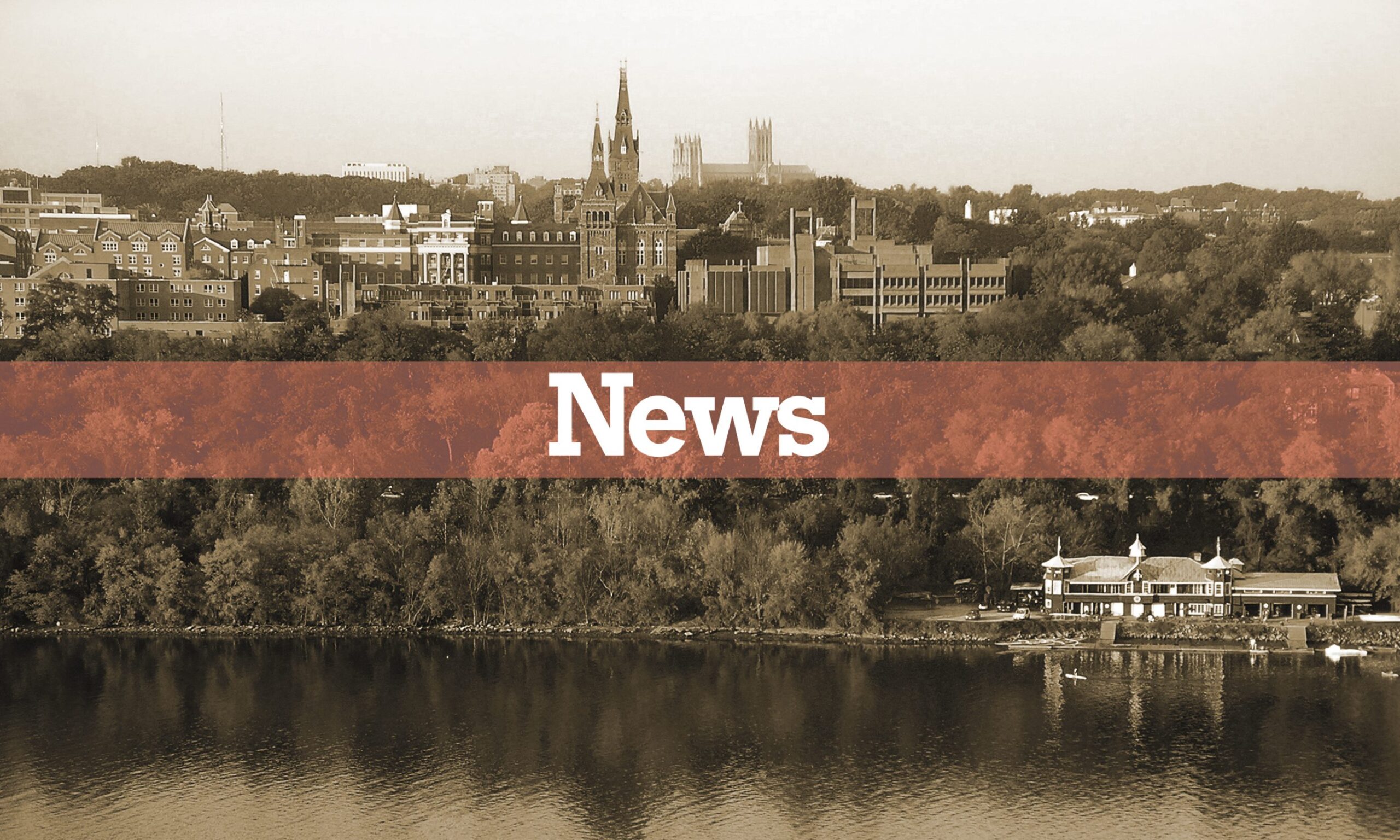Bob Cusack, editor-in-chief of The Hill, and Sarah Westwood, a White House reporter for the Washington Examiner, discussed their experiences covering the Trump White House and the role of the media in politics. The talk was titled “Political Journalists: Those who Brave the Swamp” Several student organizations co-hosted the event, which was held in Copley Formal Lounge on Oct. 27.
In line with the theme of avoiding partisan bias in the media, student groups of a variety of political viewpoints were involved in organizing the event. The College Democrats, College Republicans, Bipartisan Coalition, and Lecture fund helped organize.
“It’s really important to recognize the full spectrum of opinions. We thought it’d be really important for this event in particular to have every side recognized,” said College Democrats events organizer Emma Vahey (COL ‘20).
The journalists touched upon several major themes such as fair political reporting, the inner workings of professional journalism, the contemporary challenge of fake news, and concerning trends in contemporary news coverage.
“I think the media as a whole tends to collectively focus on the same kinds of stories and we don’t see a lot of diversity in the type of stories. So whatever front page headlines is in the morning New York Times or is the lead on ‘Morning Joe’ tends to drive that news cycle,” said Westwood.
In keeping with this theme of media being a monolith that reports the same news topics, Cusak emphasized the media’s failure to cover the opioid epidemic in its early stages. Although widespread usage of opioids had been going on for a while, major news organizations have not been reporting on the issue.
“This is an example of how you need to get outside out of the beltway and not listen to the the groupthink of Washington. At the height of September 2015,I went to New Hampshire and we were sponsoring a presidential forum on both sides. No one in D.C. was writing about the opioid crisis and I went ‘Wow this is an incredible problem that we need to be writing about.’ Journalists have to get out of the Washington beltway. It takes 91 lives a day. I don’t there’s enough coverage on that,” Cusack said.
Cusack and Westwood also discussed the 2016 election and expressed their own opinions on the media’s role in contemporary politics. Both argued that the mainstream media suffered from groupthink and embraced an echo chamber mentality in assuming that Hillary Clinton would win.
“We all thought Hillary Clinton was going to win, and so it didn’t really matter how we approached President Trump,” said Westwood.
Cusak also responded to a point often raised regarding the 2016 election, that the amount of airtime President Donald Trump received while campaigning contributed to his victory. He pointed out how other major candidates like Marco Rubio and Hillary Clinton were not as open to the media, selectively giving privileged access to a few outlets.
“We asked every presidential candidate for an interview, and this was during the primaries. Half said no, half said yes. I remember telling Jeb Bush’s guy saying that Trump had been playing the media like a violin. I remember going, ‘I can’t disagree with you but you gotta pick up the instrument to make music.’ Bush wouldn’t sit down, he would only go on Fox. Hillary Clinton wouldn’t sit down. Some of the candidates Marco Rubio wouldn’t sit down. I think it’s up to candidates to determine whether or not they’re afraid of the media. The first Trump interview was only supposed to be 15 minutes but he ended up talking for 80. If you’re hiding, then you shouldn’t complain,” said Cusack.
Students who attended the event appreciated the discussion’s contemporary focus.
“I feel like it’s definitely a critical conversation that needs to be had especially in the Trump era with attacks on the media. And it’s great to hear from people within the media establishment and how they remain truthful to the news,” said Trevor O’Connor (COL‘20).








[…] The talk was titled “Political Journalists: Those who Brave the Swamp” Several … “It's really important to recognize the full spectrum of opinions. Source […]